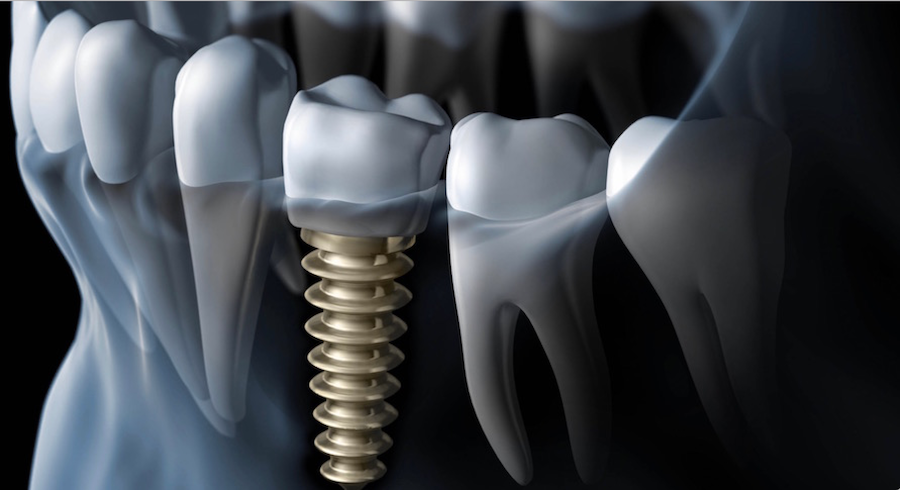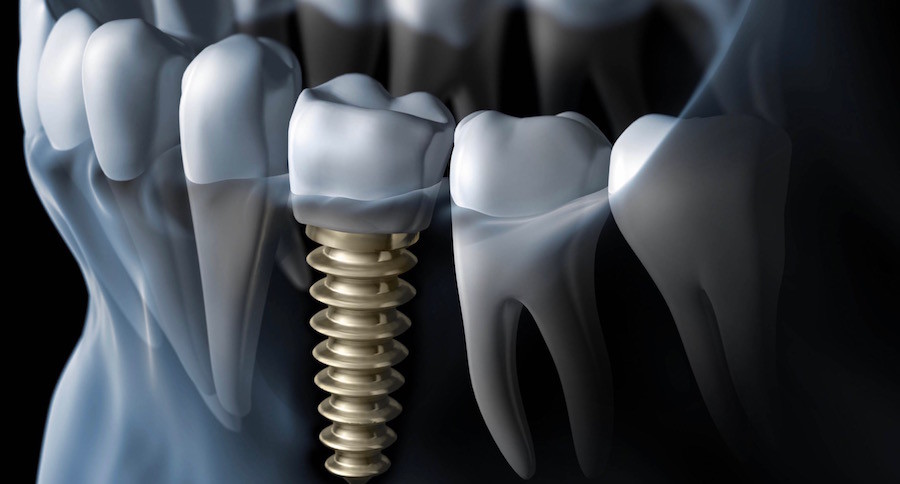
Dental implants are the ultimate solution for those who need to replace missing teeth. They provide an alternative to dentures and bridges for those who are so inclined, and for the most part have a great acceptance and success rate. However, there are circumstances that can result in dental implant failure. Today, we’re going to take a look at what these are so that you can make more informed decisions should you be considering a dental implant, or are concerned about the ones you have now.
5 Reasons Why Dental Implants May Fail and What You Can Do About It
1. Bone Loss and Osseointegration
This reason is a common culprit among those who wait too long after tooth loss/extraction to receive an implant. Without a tooth (or teeth) to provide support, the jawbone (in the impacted area) begins to weaken and degrade. This makes it harder to perform the implant procedure and results in a lack of osseointegration. Osseointegration refers to bone connection, when the bone attaches itself directly to the implant (metal or ceramic) and subsequently grows around the implant to provide firm support over the months and years to follow.
While there are numerous factors that contribute to osseointegration, those of you in need of a dental implant are advised to minimize the period (after healing) between extraction and the implant procedure. In addition, practice optimal oral hygiene and be sure to supplement your diet (as allowed by your physician) with calcium, Vitamin D, and Vitamin C while reducing bad habits (such as smoking and overeating) that contribute to plaque production and an ultimate reduction in bone mass. Keep reading.
2. Occlusal Overload
Carrying over from the point above, we must address occlusal (portion of a tooth that comes into contact with a tooth in the other upper or lower jaw) overload. Occlusal overload is also a primary concern for the health of dental implants. It can result in fracture and/or loosening of the implant fixture and/or its prosthetic components, and may also lead to the disruption of the bond between the implant surface and bone. The outcome, is eventual peri-implant bone loss and ultimate failure of the dental implant.
Occlusal overload is often caused by an excessive bite force, but studies also show that plaque accumulation can contribute, which means that dental hygiene is more important than ever when you’ve invested in dental implants to replace your missing teeth.
Other causation factors in occlusal overload include the existence of long cantilevers, para-functional habits (i.e. teeth grinding), and inadequate occlusal surfaces. By seeing a specialist and taking corrective action where viable (for example, bruxism treatment) you can mitigate the risk of occlusal overload and dental implant failure.
3. Peri-implantitis
Peri-implantitis is an infectious disease that results in the inflammation of the hard and soft tissues surrounding your dental implant and leads to deterioration of the bone around an osseointegrated implant.
Causes and/or risk factors of peri-implantitis include poor oral hygiene, smoking (nicotine constricts blood vessels and limits the supply of oxygen and nutrients needed for healing), genetic predisposition, diabetes, and periodontitis. Symptoms of the disease include bleeding gums, redness and swelling of the oral mucosa, pain around the implant, a loose-fitting implant, and bone loss around the implant. If you are experiencing any of these symptoms, see a specialist right away before the condition worsens. In addition, in following these 5 tips to improving the health of your gums, you will help reduce the potential for peri-implantitis and thus dental implant failure.
4. Patient’s General Health and Wellness
In reading above, you can see that poor oral hygiene and bad habits contribute to the conditions that cause dental implant failure. However, your overall health and wellness factor into the equation. If a preexisting condition (genetics, etc.) or way of living (fitness, diet, drug use, etc.) comprises your immune function, you may not be an strong candidate for the dental implant procedure. Success is contingent upon optimal immune function so that you are able to heal optimally and in a timely manner. If you have general health concerns, consult with your physician and be sure to make life changes (where viable and relevant) so that you can better prepare yourself and your oral cavity for dental implant success.
5. Poor Implants
Even after considering all of the above, you may experience symptoms of dental implant failure such as pain, discomfort, looseness, and/or swelling because of an entirely different factor – poor placement. If you do not properly vet a clinic and dental implant specialist, you put yourself at risk of failure due to inadequate methods and materials used to secure the implant. If you are looking to replace missing teeth or a bad implant, be sure to check accreditations and take the time to ask about equipment and facilities while requesting access to referrals and online reviews alike. View more on how to choose a dental implant specialist near you, to set the table for success for your up and coming procedure.
If you’re concerned about the health of your current dental implants or need to replace missing teeth and you reside in the Greater Vancouver area, contact our clinic today to schedule a consultation.



